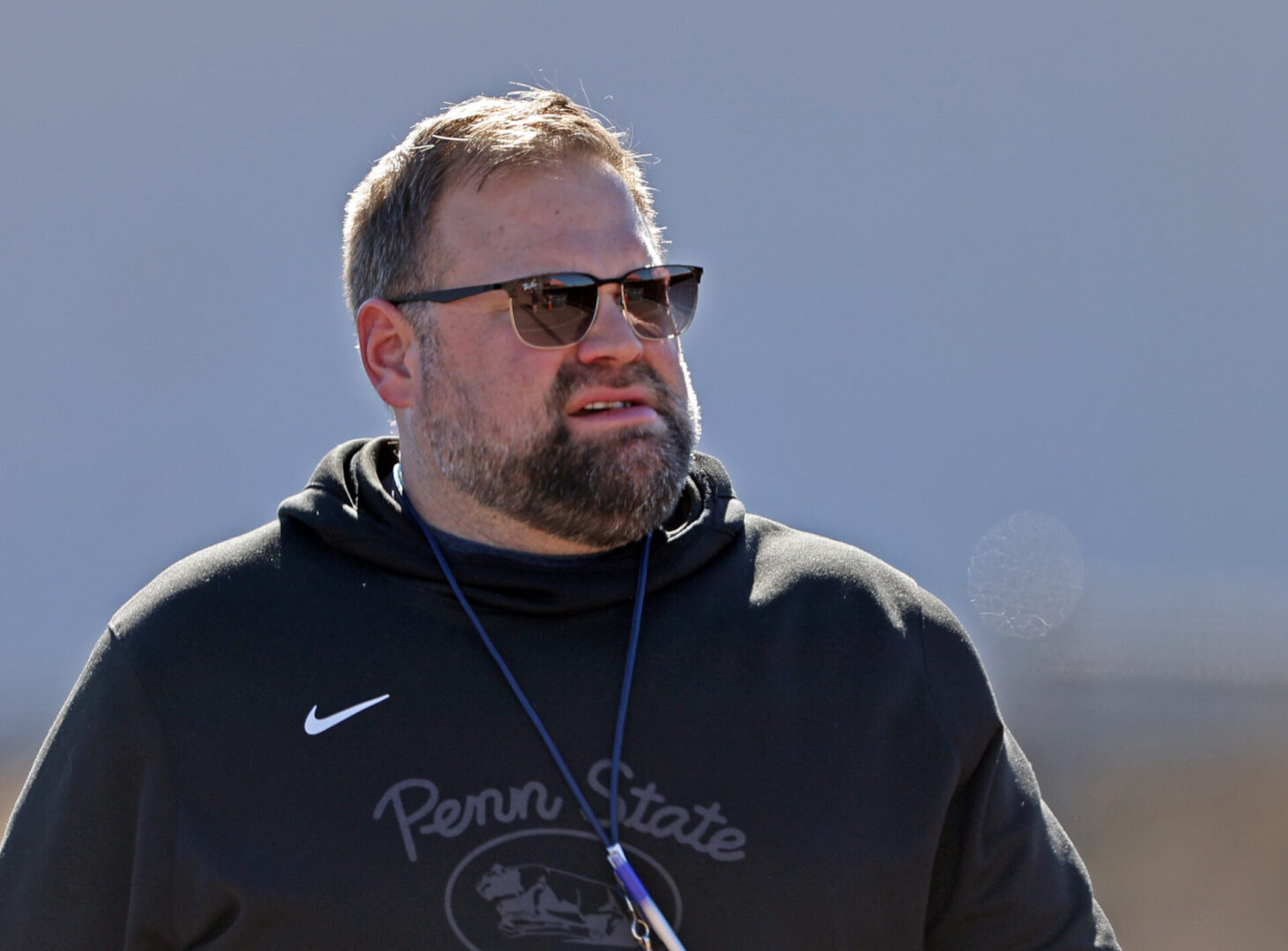FORT LAUDERDALE, Fla. — Andy Kotelnicki remembers Friday nights at Wisconsin-River Falls. His wife beside him, reciting play calls on wristbands scattered around his office. When he snaps out of the memory, Kotelnicki realizes how far he’s come. It’s been 20 years since his alma mater offered him his first coordinating gig. Two full decades to get where he is now.
Kotelnicki’s path is about as quirky as his playbook. It’s unconventional. He’s bounced from Division III to Division II to Division I and all the way up the ladder to become Penn State’s offensive coordinator. Kotelnicki has earned everything that’s come his way. Those nights in the office beside his wife, those are the nights that led him to Thursday’s Orange Bowl.
His story may be unusual in the overall landscape of college football, but it’s not in the Nittany Lions’ facilities. James Franklin is a Division II player and coach at heart. It took his defensive coordinator Tom Allen almost two decades to reach the FBS. And it took Franklin’s special teams coordinator Justin Lustig nearly just as long to tie down a gig with a Power 4 program.
“We’re all just a bunch of small college slappers, man,” Kotelnicki said on Tuesday. “We all played small college football. We all started coaching at that level. And now we’re here. We’ve all spent time painting lines, we’ve all spent time changing equipment and fitting kids for shoulder pads and helmets.”
Franklin used to fill Kutztown’s soda machines while serving as the program’s wide receivers coach. The players would chuckle as they passed, talking smack to the fresh college graduate with hardly any coaching experience. Franklin is now one of the premier coaches in all of college football. And he’s just a win away from the national championship game.
“When you’re a Division II coach and a Division II player, a lot of the things that maybe our team takes for granted or staff takes for granted — we don’t,” Franklin said last week. “When you’re a Division II guy, you kind of have to do it all. I think there’s a lot of value in that. There’s not 75 coaches, there’s eight. And you’re doing everything from lining the fields to coaching the guys.”
There are clear and obvious similarities between Penn State and Notre Dame, on field. Both programs are built through the trenches, possess two of the nation’s best rushing attacks and dominate defensively. But there’s a clear distinction between the makeups of these two programs. And that surrounds the path it took for each head coach to get to Miami.
Marcus Freeman has never played or coached outside the Division I level. He went from Ohio State to the NFL to coaching at Kent State, Purdue, Cincinnati and finally Notre Dame. Freeman played in two BCS National Championships while Kotelnicki, who’s five years older, was filling call sheets himself and having his wife read the plays back to him at Wisconsin-River Falls.
It’s not a knock on Freeman, who has earned his opportunity and taken advantage of it in full force, but a distinction of the culture Franklin has built. It’s unique. It’s blue collar. And it’s unrelenting. This is a program made up of coaches who coached at the lowest levels of the sport, and fought their way to the top. This is the ultimate underdog story.
“You didn’t have a whole recruiting department to help you recruit. You didn’t have a whole equipment staff to help you organize equipment. You didn’t have managers to set up your drills. You had to do all that stuff yourself,” Kotelnicki said. “And, so, if you wanted a drill set up, you wanted cones or pop ups or whatever, you had to get your ass over there, set them up.”



